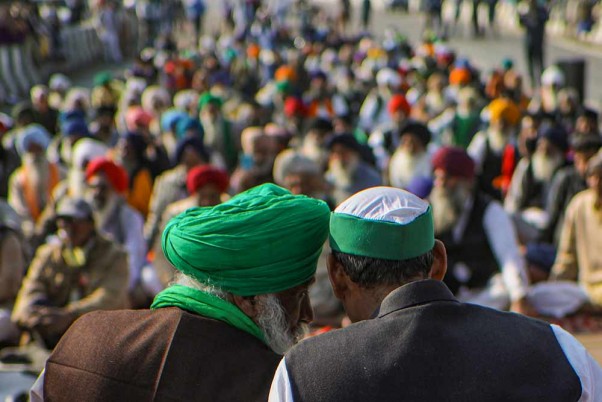NEW DELHI: Hardening their position ahead of the next round of talks with the Government, protesting farmer unions on Saturday said they will take out a tractor parade towards Delhi on January 26, when the country will celebrate Republic Day, if their demands are not met.
British Prime Minister Boris Johnson will be in the national capital on January 26. He will be the chief guest at the Republic Day parade which will be held at Rajpath.
Addressing a press conference, farmer leader Darshan Pal Singh said their proposed parade will be called “Kisan Parade” and it will be be held after the Republic Day parade.
The next round of talks between the government and protesting farmer unions is scheduled to be held on January 4. On Friday, the unions had announced that they would have to take firm steps if the meeting fails to resolve the deadlock.
Swaraj India leader Yogendra Yadav said it is a “plain lie” that the government had accepted 50 per cent of the farmers’ demands.
“We have got nothing on paper yet,” he said.
After the sixth round of formal negotiations on Wednesday, the government and farm unions reached some common ground to resolve protesting farmers’ concerns over rise in power tariff and penalties for stubble burning, but the two sides remained deadlocked over the main contentious issues of the repeal of three farm laws and a legal guarantee for minimum support price (MSP).
Farmer leader Gurnam Singh Choduni said, “In our last meeting, we posed a question to the government that will you buy 23 crops on MSP. They said ‘no’. Then why are you misinforming the people of the country?”
So far, over 50 farmers have been “martyred” during our agitation, he said.
Braving the cold, thousands of farmers, mainly from Punjab and Haryana, are protesting at various borders of the national capital for more than a month against these three new laws.
The government has presented these laws as major agriculture reforms aimed at helping farmers and increasing their income, but the protesting unions fear that the new legislations have left them at the mercy of big corporates by weakening the MSP and mandi systems. (AGENCIES)


